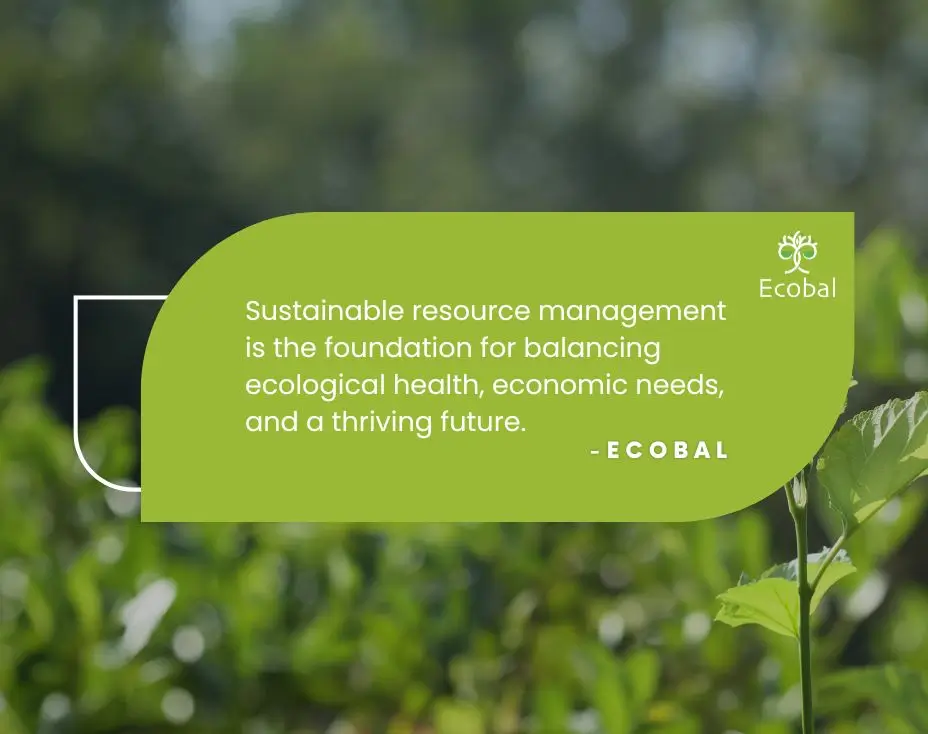Sustainable Resource Management: Analyzing Strategies for Responsible Use of Natural Resources
Sustainable Resource Management (SRM) is increasingly recognized as a critical approach to ensuring the responsible use of natural resources while balancing ecological health with economic needs. As the world’s population grows and environmental challenges intensify, the demand for natural resources has escalated, resulting in significant pressure on ecosystems. This calls for a paradigm shift toward sustainable practices that not only meet current needs but also safeguard resources for future generations.
Sustainable resource management involves the responsible use of natural resources, including water, soil, forests, and minerals, to maintain the health of ecosystems and support human well-being. Unsustainable practices have led to significant environmental degradation, including deforestation, soil erosion, water scarcity, and biodiversity loss. Currently, forest depletion is occurring at an alarming rate, significantly contributing to resource depletion and greenhouse gas emissions. This underscores the urgent need for effective management strategies that promote sustainability across multiple sectors.

Objectives of Sustainable Resource Management:
- Resource Conservation: Ensuring that resources are used efficiently and conserved for future generations is paramount. This includes adopting practices that minimize waste and promote the regeneration of natural resources.
- Economic Viability: Sustainable management must also consider economic factors, ensuring that resource use supports livelihoods and contributes to local and national economies without compromising environmental integrity.
- Social Equity: Equitable access to resources is essential for social stability and community well-being. Sustainable resource management should address the needs of marginalized communities, which are often disproportionately affected by resource depletion and environmental degradation.
- Ecosystem Resilience: Increasing the resilience of ecosystems to withstand environmental change is crucial for maintaining biodiversity and ecosystem services.
Strategies for Sustainable Resource Management
1. Integrated Resource Management
- Holistic Planning: Manage resources like water, land, and energy as interconnected systems.
- Cross-Sector Collaboration: Encourage partnerships between industries, governments, and NGOs.
2. Biodiversity Conservation
- Protect Ecosystems: Establish protected areas to conserve habitats and species.
- Restore Degraded Lands: Rehabilitate environments impacted by human activity.
3. Resource Efficiency
- Adopt Circular Economy Principles: Focus on reuse, recycling, and repurposing to minimize waste.
- Improve Technology: Implement energy-efficient and resource-saving technologies in production processes.
- Optimize Supply Chains: Reduce resource consumption by streamlining logistics and transportation.
4. Renewable Resource Utilization
- Invest in Renewable Energy: Transition from fossil fuels to solar, wind, hydro, and geothermal energy.
- Sustainable Agriculture and Forestry: Implement practices that preserve soil health, water resources, and biodiversity.
5. Policy and Regulation
- Enforce Environmental Standards: Develop and adhere to regulations that limit over-extraction and pollution.
- Provide Incentives: Offer tax breaks, subsidies, or grants for companies adopting sustainable practices.
6. Community Involvement
- Educate and Engage: Raise awareness among local communities about sustainable practices.
- Empower Local Stakeholders: Involve them in decision-making to ensure equitable resource distribution.
7. Innovative Approaches
- Adopt Smart Technologies: Use IoT, AI, and big data to monitor and manage resource use efficiently.
- Bioeconomy Initiatives: Develop industries based on biological resources, such as biofuels and bioplastics.
8. Monitoring and Adaptation
- Track Progress: Use indicators to measure resource consumption, efficiency, and sustainability.
- Adapt Strategies: Revise policies and practices based on scientific findings and changing circumstances.
Why it matters for Ecobal?
At Ecobal, we are committed to staying at the forefront of technological advancements in CO2 sequestration. By integrating cutting-edge technologies such as ultra-fast CO2 hydrate formation, we enhance our efforts to transform former agricultural or barren lands into thriving ecosystems.
Ecobal has achieved significant milestones, including:
- Nature Spots in five different EU countries: France, Italy, Poland, Spain, and Romania.
- Ecobal’s storage capacity: Ecobal manages 155 hectares of Nature Spots across the EU, storing 1581 tons of CO2 and releasing about 1150 tons of oxygen per year.
This ensures that our projects not only effectively sequester CO2, but also contribute to sustainable biodiversity conservation.
Ecobals Mission:
- Raise awareness and establish authority to certify the ecological health and capacity of rural and natural landscapes.
- Monetize ecosystem services to demonstrate the economic value of nature.
- Use natural ecosystems as efficient carbon sinks for CH4 and CO2 sequestration and biodiversity conservation.
- Turning CO2 and CH4 from a challenge into valuable and tradable commodities.
- Manage soil microbiota and fauna to improve soil health and ecosystem functionality.
- Restoring biodiversity through the reintroduction and conservation of native species.
In Summary
Sustainable resource management is essential to balancing ecological health with economic needs while ensuring the availability of natural resources for future generations. By adopting integrated approaches that include the use of renewable energy, sustainable agricultural practices, waste reduction strategies, and sound policy frameworks, societies can work effectively to achieve sustainability goals. As global challenges related to climate change and resource depletion intensify, prioritizing sustainable resource management will be critical to fostering resilience and promoting long-term ecological integrity.
About the Author
This article is written by Dr. Amisalu Milkias, Ecobal’s CO₂ Project Specialist, dedicated to advancing sustainable resource management and promoting innovative strategies for ecological health and economic sustainability.


